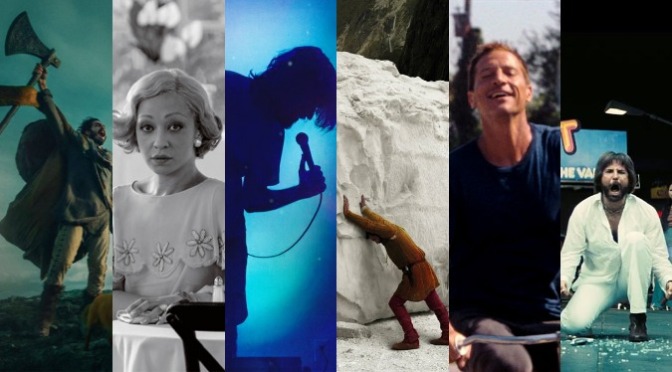Another weird year for cinema means another caveat-laced Best Of list, something just south of comprehensive, perhaps, largely due to a significant scaling-back of my usual moviegoing frenzy. I like to think I saw all the big blockbuster stuff in the cinema — as opposed to on the couch — like Dune, Last Night in Soho, No Time to Die, a few Marvel flicks, etc. And a few of the “smaller” films that actually made my Top Ten were also experienced out in the wild, which I’m thankful for, not that this ultimately had much bearing on how good or bad the film actually was.
Fact remains that I saw fewer movies this year than I usually do, so this Best Of list does not reflect Ryusuke Hamaguchi’s Drive My Car, Joachim Trier’s The Worst Person in the World, Apichatpong Weerasethakul’s Memoria, Celine Sciamma’s Petite Maman, Mike Mills’s C’mon C’mon, Steven Spielberg’s West Side Story, Guillermo del Toro’s Nightmare Alley, Joel Coen’s Tragedy of Macbeth, Sian Heder’s CODA, Julia Ducournau’s Titane, and a bunch of other films that would likely upset the following rundown. Still, from what I did see, here are the ones that moved me the most.
And as always, please remember to visit our Support Film Art page, aimed at encouraging relief to local arthouse theaters.




 Oftentimes, we yearn for simplicity in movies. There should be good guys, bad guys, and a happy ending. Maybe it was all those fairy tales we heard growing up. Unfortunately, for those looking for the next great American fairy tale, Joel Edgerton’s The Gift is not it.
Oftentimes, we yearn for simplicity in movies. There should be good guys, bad guys, and a happy ending. Maybe it was all those fairy tales we heard growing up. Unfortunately, for those looking for the next great American fairy tale, Joel Edgerton’s The Gift is not it.